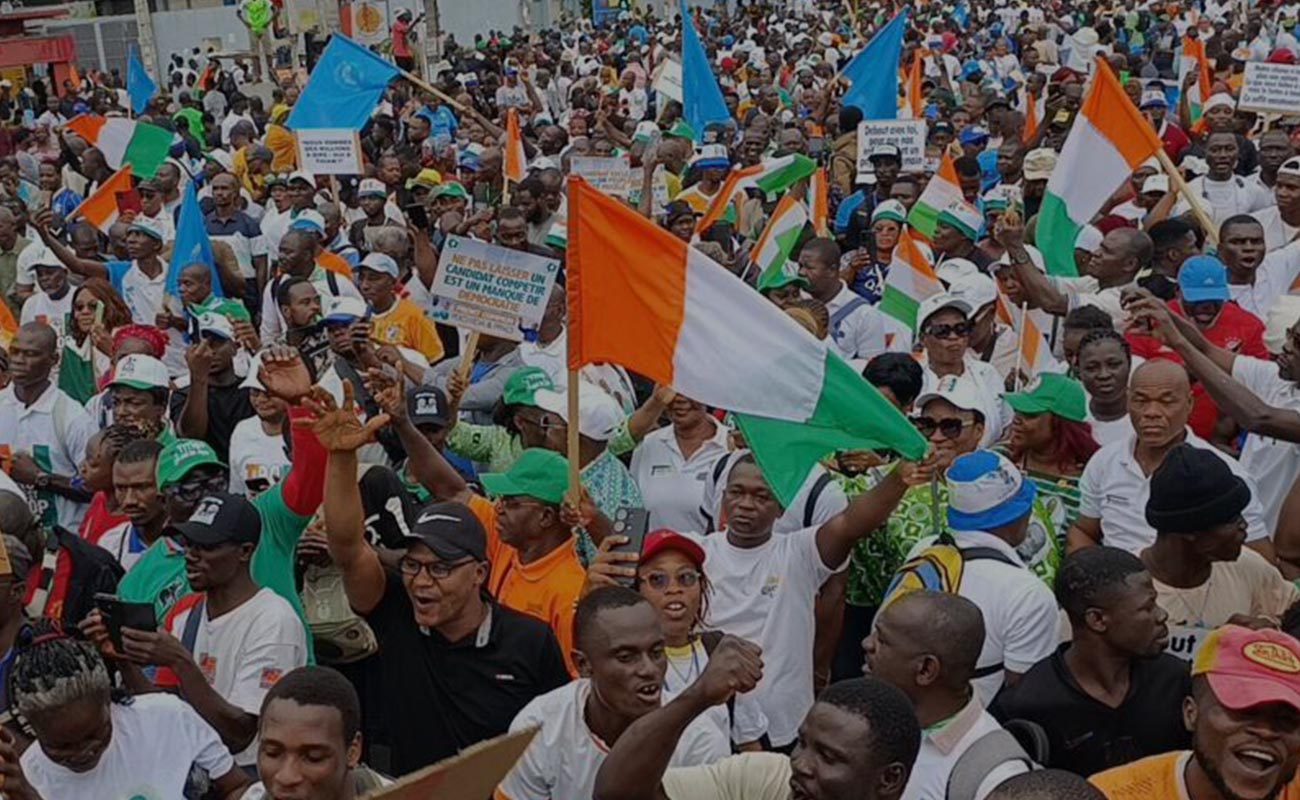
By Oluwaseun Taiwo
In less than three months, Côte d’Ivoire will return to the polls and what happens in October 2025 will matter far beyond its borders. At stake isn’t just who leads the country next, but whether democracy in West Africa still holds its ground when truly tested.
This election is not business as usual. It is a political crossroads, where trust must either be rebuilt or risk collapsing under the weight of exclusion, power retention, and institutional doubt.
A Familiar Face, a Fading Promise
President Alassane Ouattara’s decision to run for a fourth term has reignited long-standing concerns about term limits and political continuity in Africa. On paper, his claim is constitutional, the 2016 reform reset the term count. But politics isn’t just about legality; it’s also about legitimacy. Ouattara had previously promised to step aside. That promise matters. Breaking it sends the wrong message, not just to Ivorians but to leaders across the region flirting with the same idea.
We’ve seen this before- presidents holding onto power under the guise of “stability.” But real stability doesn’t come from staying in office; it comes from building institutions that are strong enough to function with or without you.
This election could have been an opportunity for a smooth democratic handover. Instead, we’re watching a script that feels too familiar.
Perhaps the most troubling aspect of this election is who has been left out. Key opposition leaders including Laurent Gbagbo, Guillaume Soro, Charles Blé Goudé, and Tidjane Thiam have all been barred from running. The reasons range from legal technicalities to prior convictions, but the pattern is hard to ignore.
We should be asking: How fair is a race if your strongest rivals never make it to the starting line?
Their exclusion narrows voters’ choices and weakens the public’s faith in the democratic process. If elections are meant to be about competing ideas and visions, then Côte d’Ivoire is heading into October already off balance.
The streets have responded with protests, outrage, and public frustration. And I believe rightly so. A vibrant democracy doesn’t shrink the political space; it expands it. Côte d’Ivoire deserves more voices on the ballot, not fewer.
Glimmers of Unity but Can It Last?
There is still hope. Opposition parties have begun to rally around a coalition- the Coalition for a Peaceful Alternation (CAP-CI). This is promising. When leaders set aside egos and unite behind common goals, real change becomes possible.
But the coalition is not yet fully formed. Some key actors, like Gbagbo’s PPA-CI, remain outside the tent. If the opposition truly wants to challenge the ruling party’s grip, unity isn’t optional, it’s the only way forward. The first round may divide, but a strong second round can unite if the groundwork is laid now.
A Process That Must Be Watched
Beyond the politics, let’s talk about the electoral process itself. The voter register has 8.7 million names but how accurate is it? Will the electoral commission (CEI) be truly impartial? Will polling station results be shared publicly?
These are not abstract questions. They go to the heart of credibility. Yet, instead of opening up to international partners for support and oversight, the government has rejected €12 million in election aid from the EU and the UN, claiming financial independence.
In principle, this sounds patriotic. In practice, it could mean less transparency. Sovereignty is good, but democracy thrives on scrutiny. Especially in a country with a history of electoral violence, watching closely should be welcomed, not avoided.
The Voices Calling for Peace
Thankfully, some actors are stepping up. Religious leaders especially the Catholic Bishops of Côte d’Ivoire have urged calm, dialogue, and a commitment to peace. The West African Elders Forum has also come in with quiet diplomacy, encouraging parties to rise above provocation.
Côte d’Ivoire Has a Chance Let’s Not Waste It
Despite the tension, I remain hopeful. Côte d’Ivoire has come a long way since the dark days of 2010–2011. The country has shown resilience. It has rebuilt its economy, reopened political dialogue, and taken steps toward reconciliation.
But progress can be undone quickly if institutions are weakened and if elections become rituals rather than real choices.
This election is a chance to prove that West African democracy still has muscle that a peaceful transfer of power is possible, that justice can be impartial, and that citizens can decide their leaders without fear or manipulation.
Let’s not repeat history. Let’s make it better.
October 2025 will be a defining moment. Will Côte d’Ivoire rise to it?
That depends on all of us leaders, voters, observers, and institutions. This isn’t just about who wins. It’s about what kind of democracy Ivorians want- democracy built on fear and exclusion? Or one grounded in openness, fairness, and accountability? The time to decide is now.
